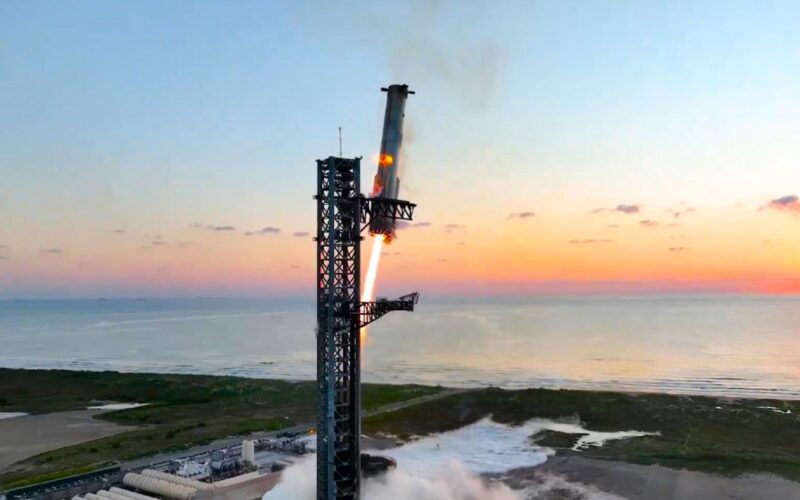SpaceX has successfully completed its fifth Starship test flight, marking a significant milestone in the company’s ambitious plan to develop a fully reusable rocket system.
On October 13, 2024, SpaceX returned its towering first-stage booster to its launch pad in Texas, utilizing a groundbreaking recovery method that involves large metal arms attached to the launch tower.
The Super Heavy booster lifted off at 7:25 a.m. CT (12:25 GMT) from SpaceX’s Boca Chica launch site. After sending the second-stage Starship rocket on its mission, the booster separated at an altitude of approximately 74 kilometers (about 46 miles) and initiated its descent back to the launch site. To facilitate a safe landing, it re-ignited three of its 33 Raptor engines in order to slow down.
In a remarkable maneuver, the booster successfully landed in the arms of the launch tower, securing itself in place with its forward grid fins. This new innovative landing technique represents a crucial advancement in SpaceX’s ongoing efforts to create a reusable rocket. The company’s ultimate goal is to transport cargo to orbit, ferry humans to the Moon for NASA, and eventually achieve a manned mission to Mars.
The Federal Aviation Administration (FAA) granted SpaceX’s launch license shortly before the test flight, following extensive discussions regarding launch approvals. Starship, which was first unveiled by SpaceX founder and CEO Elon Musk in 2017, has encountered challenges in earlier tests, including several explosions.
However, this latest test marked a significant achievement, as Musk and his team managed to bring the first-stage booster back to the same launch pad just seven minutes after liftoff. The flight director made real-time decisions about the landing attempt, carefully ensuring both the booster and launch tower remained stable throughout the process.
If conditions had not been right, the booster would have splashed down in the Gulf of Mexico, similar to previous test flights.

